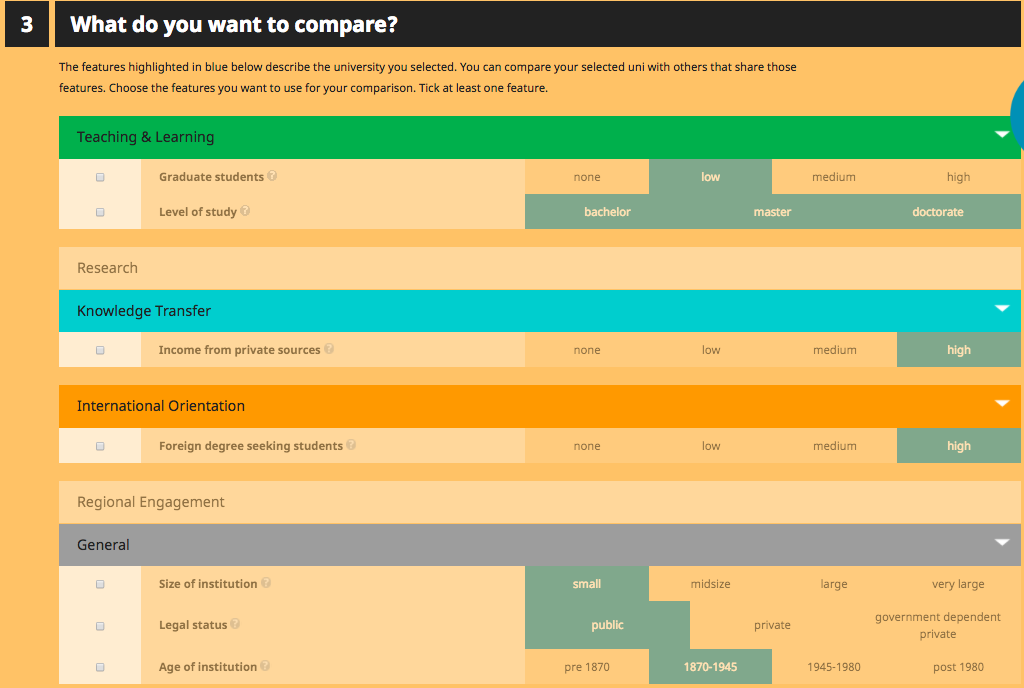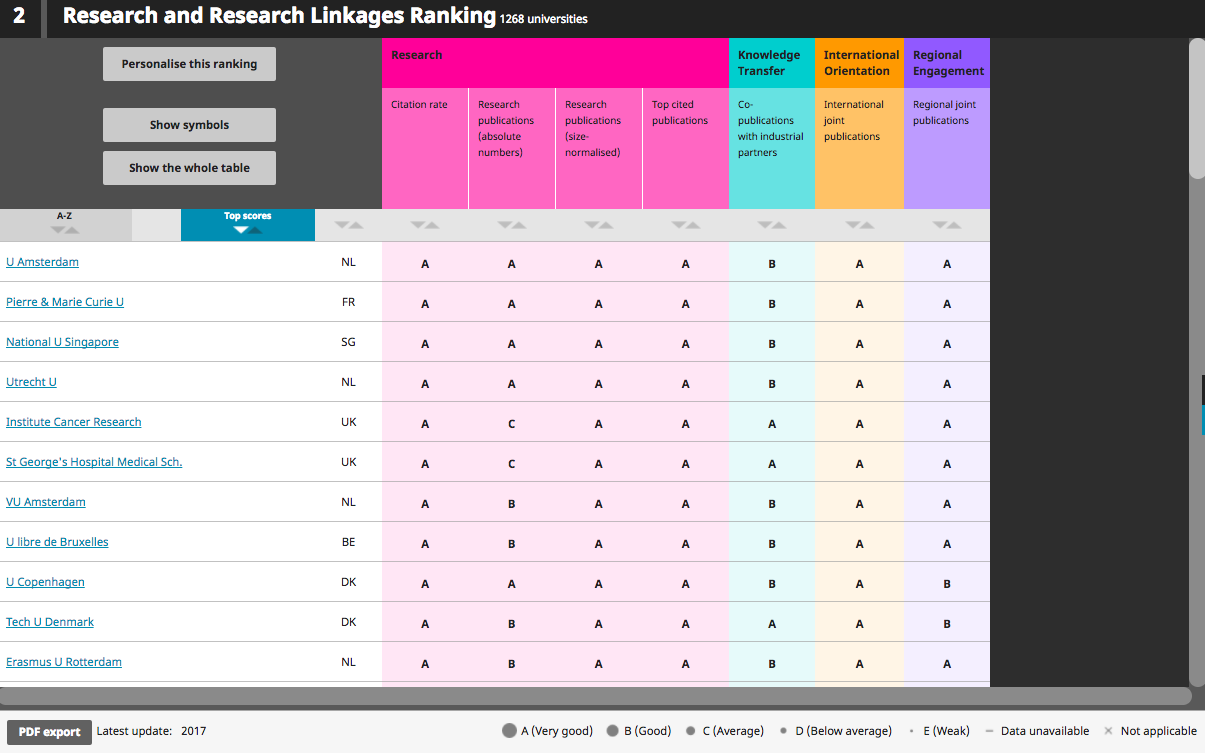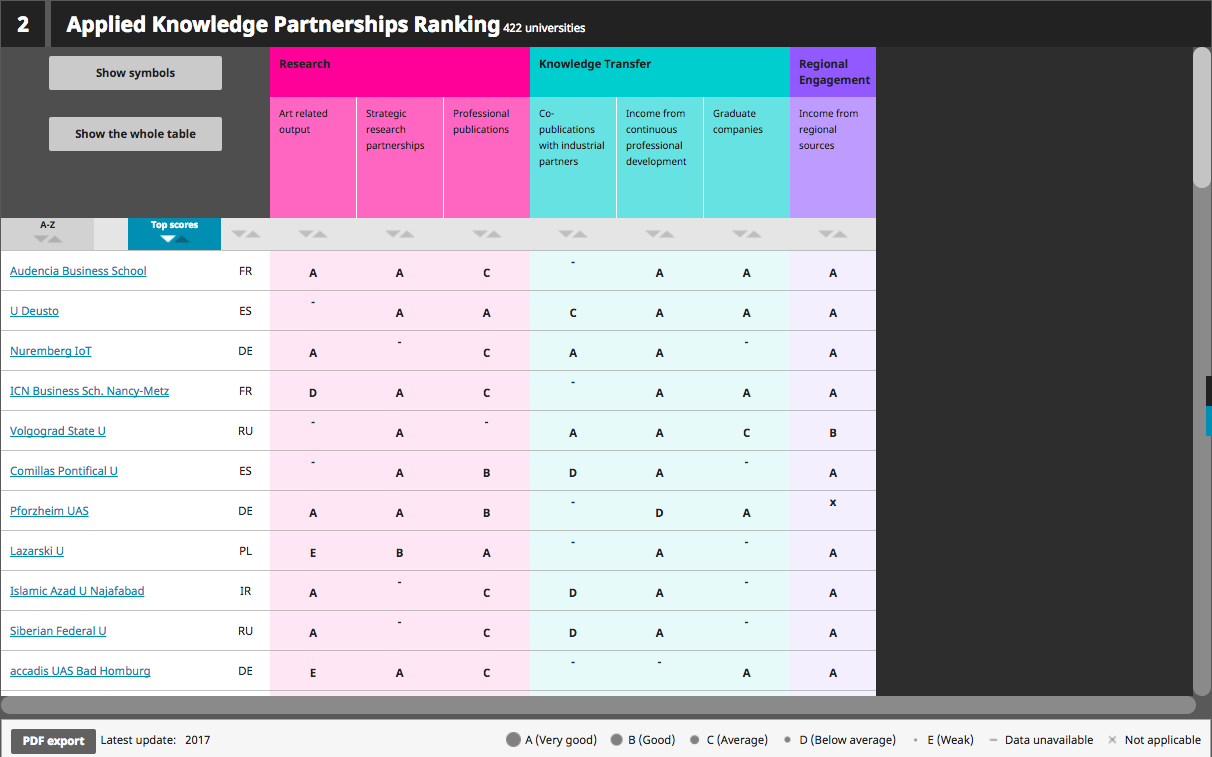Today, U-Multirank – a European Commission project, published its 2017 results of over a thousand universities, making it the world’s largest university rankings. The EC webpage describes it as a ‘unique new tool for comparing performance includes information on more than 1,300 higher education institutions, 3,250 faculties and 10,700 study programmes from more than 90 countries.’
U-Multirank – a European Commission project, published its 2017 results of over a thousand universities, making it the world’s largest university rankings. The EC webpage describes it as a ‘unique new tool for comparing performance includes information on more than 1,300 higher education institutions, 3,250 faculties and 10,700 study programmes from more than 90 countries.’
This year includes more universities than previously ranked by the four-year-old ranking system, to recognise ‘hidden gem’ universities in the changing landscape of global HE. U-Multirank has allowed universities to compare themselves with other universities based on specific indicators they focus on, i.e. international orientation, regional engagement, or knowledge transfer. The aim of the ranking is to turn light away from rankings that tend to focus on areas, such as research citations, that continuously result in the selection of well-known elite universities at the top.

You can then compare the selected university with others, filtering the results according to region.
The Rankings also offer ‘readymade rankings’ which include Research and Research Linkages and Applied Knowledge Partnerships rankings.


Results can be exported as PDFs.
The Times Higher Education reported in 2014 that before the Rankings were launched, the ‘UK’s universities and science minister David Willetts warned that the European Commission’s project to develop a new approach to global university rankings, U-MultiRank, risked being dismissed as a self-serving exercise.’ The article quotes Willetts as telling the ‘House of Lords European Union Committee inquiry on the modernisation of higher education’ that the rankings could be seen as “an attempt by the Commission to fix a set of rankings in which European universities do better than they appear to do in the conventional rankings”. The article then continues, ‘two years on, now that the first ranking is live and we can see which institutions have – and more importantly which have not – chosen to join the bold experiment, it would seem that the minister’s warning was remarkably prescient.’
Interestingly this year, most news coverage were from abroad ie Australia, France, Germany and Italy with the exception of Blog Preston, perhaps not surprising as UK HEIs feature far down the table on both readymade sets.